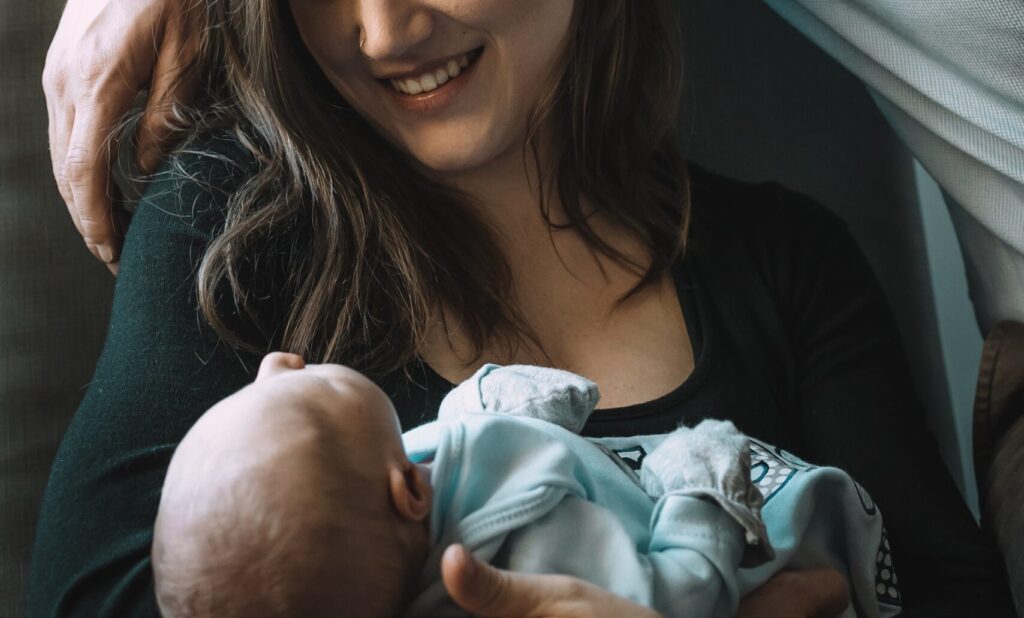Posted November 20th 2020
Thanks to everyone who joined us on the Bipolar and Pregnancy webinar on 12 November.
We had lots of positive reaction and questions but some people told us they were sorry to have missed it so I’m writing this blog for you and for all the people who sent in questions which we didn’t get a chance to answer.
Professor Ian Jones and I are going to try to address most of them in a supplementary blog so look out for that soon.
Considerations regarding pregnancy
We were very lucky to have Professor Ian Jones with us, from the National Centre for Mental Health at Cardiff University, who is a world expert on bipolar and pregnancy and a huge friend to Bipolar UK over many years, and he outlined the main things you need to consider when thinking about having a baby when you have bipolar.
Many of you probably know that childbirth can be a trigger for an episode, sometimes a serious episode, so Professor Jones brought us up to date with the latest research and talked through some of the challenges and what you can do reduce your risk by reviewing your medication and treatment regime before trying for a baby.
Then I talked about my own experience as a woman with bipolar 1 who ended up in hospital after the birth of my first child but managed to avoid it the 2nd time by taking various steps to stay well.
To give you some background:
I was diagnosed with bipolar 1 at 23 after probably eight years of escalating mood swings – down in the winter, up in the summer.
My true problem was undiagnosed until my second summer of mania landed me in a psych hospital for a couple of months.

I vividly remember an incident before I was discharged when I had a session with a psychiatrist who wasn’t the usual one who saw me and he said to me that I had to accept living with a serious chronic mental illness and that I probably wouldn’t be able to ever have children.
I must say I was dumbfounded – and thankfully when my regular psychiatrist came back from holiday I asked him about this and he said he didn’t agree and that we should see how I get on.
I must stress that this was a long time ago, but my work since then researching this subject and interviewing nearly 100 women with bipolar for my PhD and other projects, has shown that occasionally women still get told that, though thankfully much more rarely now.
Lithium and pregnancy
Well, I was – and am – very lucky because I was put on lithium and I’m one of the percentage of people for whom it works extremely well – no side effects except minor cognitive dulling – so I got on with my life, trained and worked as a newspaper journalist, got a flat, got married.
Both my husband Ed and I were very keen to start a family so I asked the psychiatrist I saw every six months and she said I had to come off my lithium before trying to get pregnant as it could be harmful to the baby (advice which has changed due to more recent research, though it still a decision to be discussed very thoroughly with your psychiatrist).
I did taper off my lithium and luckily stayed well during the pregnancy but problems arose after the birth.

The birth went reasonably well but I had to stay in for an extra two days for a physical issue which, as I was on a busy four-bed ward, meant I hardly slept for three nights.
I thought I’ll be okay if I get home but it didn’t go to plan.
Because I’d been off my lithium for 11 months without a problem I decided I was absolutely fine to breastfeed – breast is best and all that – BIG mistake!
Obviously, feeding meant that my sleep was even more disrupted.
My mood started swinging about – elated one minute, irritable the next.
I think Ian would describe it as a mixed episode: I was staying up all night writing a novel, I became increasingly paranoid (I became very worried about two men sitting in a black Mercedes down the road), had mild hallucinations.
Both me and Ed recognised the episode was escalating so we got help and after a few problems accessing secondary care, it led to spending five weeks in hospital.
To be honest, I think my husband was more upset and traumatised by this than me: I was so exhausted I mainly felt relief to be able to sleep – and I had the comfort of knowing Ed and my family would look after the baby.
Planning ahead
Though I only spent five weeks in hospital, I wasn’t right for a few more months when I came home and was very glad of the support of my family but it hadn’t affected my bonding with my daughter thank goodness.
After about a year I was ready to give it another go – but this time I made sure I planned ahead better.
I discussed it with my psychiatrist and I agreed that I should go straight back on my lithium as soon as the baby was born and bottle-feed so I could get my sleep.
Because I knew how critical sleep would be, I also arranged for a relative to move into the spare room and do the night feeds for a fortnight so I could get back into a rhythm.
Well – it worked! My son was fine and so was I.

So, although my kids are grown up now, I think if you’re also a woman with bipolar hoping to have children, the things you need to think about haven’t changed that much.
The difference is that now there’s a lot more information available (at last!); there’s more research on medications (thank goodness, though we still need much more), and there are much better perinatal mental health services – Hurray!
Those of us who’ve been campaigning for years for this improvement – Ian and me and hundreds of others all over the country – are absolutely delighted that things are improving but there’s still work to be done, especially in N Ireland, Wales and Scotland, so if you want to help the campaign go to Maternal Health Alliance
I’m a great believer in taking expert medical advice and finding out the best medications that help you as an individual, but these are some additional suggestions I’ve accumulated from my own experience and that of the scores of women with bipolar who’ve given me the benefit of their wisdom:
10 top tips for staying well with a bipolar pregnancy
- Plan ahead If you’re able to see a specialist Perinatal Mental Health team for preconception advice (you’re entitled to this so make sure your GP or psychiatrist refers you), then make full use of the appointments: one for preconception advice and then when your pregnancy is established to discuss the birth and afterwards. Do take your partner or someone else to support you and don’t worry about trying to write it all down as the psychiatrist will send you a detailed letter afterwards.
- I’d also recommend writing an Advanced Directive or Statement so you can cover some of the issues that might arise if you do become unwell – you can find a blog about this on the Bipolar UK website by Tania Gergel (and there’s a video interview with friends of mine Henry and Jenny talking about how doing this really helped them when she had to go to an MBU after the birth of their second child (see below).
- Try to avoid major life changes like moving house, often on the agenda because of needing more room, but it might be better to wait a year or so – the baby won’t mind!
- Minimize stress – whether that means taking more time off work if you possibly can or practising yoga or meditation to stay calm.
- Sleep is of paramount importance – we all know that but keep it constantly in mind: for example, ask for a private room at the hospital and, if you’re breastfeeding, investigate mixed feeding and expressing – get the necessary sterilising equipment ready.
- If you can, organise help for when you have the baby. Don’t try to be SuperMum – no one is – ask for help and if you can get someone to help with night feeds for a couple of weeks, don’t hesitate!
- Consider carefully the pros and cons of breastfeeding in your situation. I was keen to do it, but in retrospect, it would have been wiser to bottle-feed and start on lithium immediately my daughter was born.
- Try to get home to a more relaxing atmosphere as soon as you can, and don’t have too many visitors. Involve your partner so he/she can judge whether you’re getting over-tired /over-stimulated.
- It goes without saying that you need to be as physically healthy as you can; don’t smoke, drink etc., do moderate exercise; Try to eat well and keep your weight down but don’t put pressure on yourself to be ‘the perfect mum’. As I said it’s not the end of the world if you don’t breastfeed, or if you need some extra help.
- I’m repeating ‘planning ahead’ as it’s such a good idea – and it can help keep you stay calm during the pregnancy and birth too because you feel more in control and reassured that you have back-up plans in place if your mood starts to be a problem – and you’re not completely thrown if they do. Remember that no-one can predict what’s going to happen in childbirth or afterwards with or without bipolar so every pregnant mum should keep an open mind – but being as prepared as possible for any contingency will make it easier to deal with whatever fate throws at you.
To be the best mother to your child for the whole of their life, you need to take really good care of yourself around the birth.
If you’re confident that you’re well-prepared, you’re much more likely to be able to relax and enjoy this special time.
And if you inform yourselves about the process together, your partner will have a better idea of what might happen (even though there’s a good chance it won’t) and so he’ll be able to cope better and support you when you need it.
Those are my top tips: to help you plan ahead, there are some great resources out there.
Further resources
- I would urge you to investigate: Bipolar UK’s website and downloadable leaflet: Bipolar disorder, pregnancy and childbirth
- There’s a podcast Ian and I made: bipolar pregnancy and childbirth ; a video of an interview with Henry and Jenny who became ill after her second child: Women and bipolar
- and a blog where Jenny describes how useful it was to be using the True Colours mood tracker when she was pregnant: Pregnancy and bipolar
- And a blog from a member who talks candidly about being a parent with bipolar: Becoming a-parent-with bipolar
- If you’ve already had a postpartum psychosis, there’s lots of information and support from fellow survivors on the APP website: Action on postpartum psychosis including more tips on how to avoid another one if you’re having a second baby.
- I particularly recommend the leaflets on the Royal College of Psychiatrists site on perinatal mental health, for example: Antipyschotics in pregnancyy ; Lithium in pregnancy and breastfeeding; Mental health in pregnancy
- And the great resources on the Tommy’s pregnancy hub for women with serious mental illness: Planning pregnancy when you have a severe mental illness; Bipolar and pregnancy planning
- Watch the other webinars from the Bitesize BEPC series
- Download NCMH mental health leaflets – including bipolar disorder, and bipolar disorder, pregnancy and childbirth
Sign up now and receive new blog posts to your inbox.
